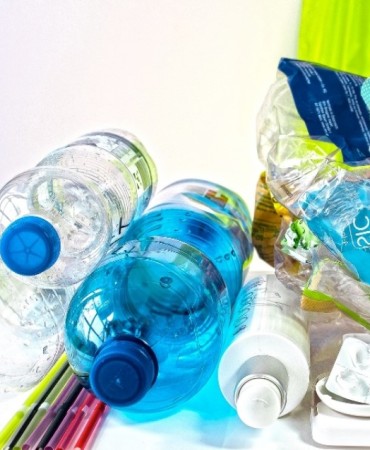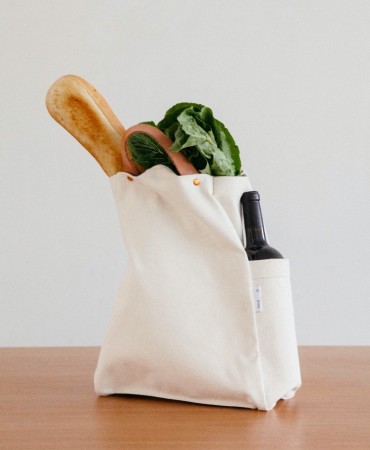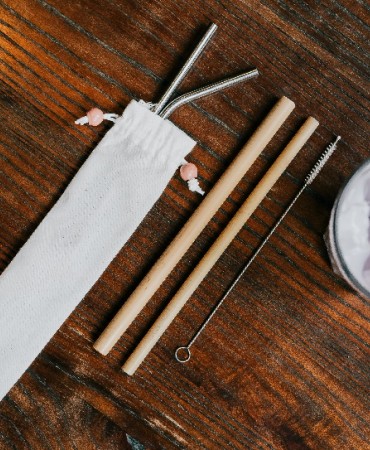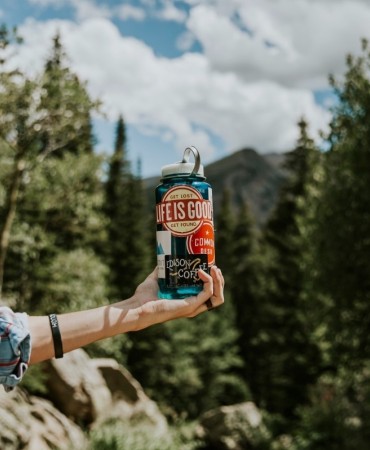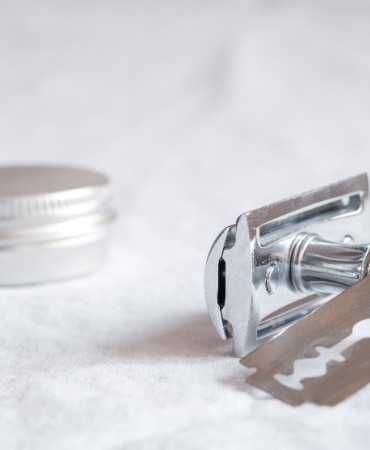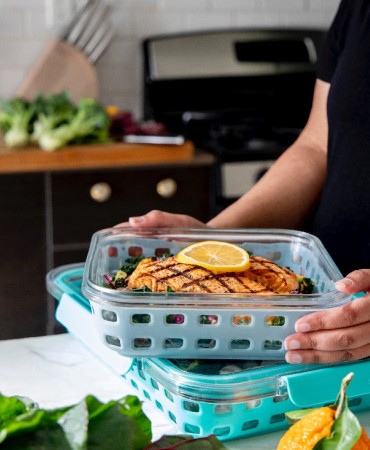As Nashville works towards its zero waste goal of 90% waste diversion by 2050, many residents are looking for ways to reduce our waste stream. However, there are many contaminants that can accidentally end up in your recycling, earning your bin an “oops” sticker from recycling auditors. One of the most common contaminants is filmy plastic such as plastic grocery bags or cling film, which cannot be recycled in Nashville’s single stream system because of its tendency to get caught in the gears at recycling centers.
Plastics products are all around us and while many of them can be recycled, many never get that far. The most impactful thing we can do is to reduce our personal plastic waste from the beginning, but with plastic so deeply embedded in our society, it’s difficult to know where to begin.
Originally used to construct combs, plastic entered into our market in the late 1800s. By the 1930s, plastic was being hailed as a “miracle material.” It had been discovered that plastic could make a vast array of products easily and cheaply. Everything from fishing lines to suitcases could be constructed from this moldable, sturdy material. With the world in awe, plastic production skyrocketed.
Today, plastic permeates our lives. Turn in any direction and you’re likely to be arms-length from a plastic product. This durable, cheap material has become a centerpiece in our consumer market, but an increasing amount of plastic waste has caused concern over the impacts that plastic products are having on the environment. Plastic does not decompose, but rather breaks down into tiny microplastics which can be present in the food we eat, the water we drink, and the air we breathe.
Since mass production began over 100 years ago, humans have generated 6.3 billion metric tons of plastic waste. Of that amount, 9% has been recycled, 12% has been incinerated, and the remaining 79% sits in our landfills and oceans. If current trends continue, scientists predict that the world’s oceans will contain more plastic than fish by 2050.
The amount of plastic waste in our environment can seem staggering. Even more overwhelming is the feeling that rises in us as consumers: the feeling of wanting to help, but not knowing where to begin. Reducing plastic waste is more doable than some may think. A large portion of plastics manufactured today are created for consumer products. By being conscientious, we as consumers can reduce the amount of plastic we purchase and use on a daily basis. By making a few small changes and alterations, we can help lessen the amount of plastic waste displaced into our environment.
Here’s a list of ways to help jumpstart a reduced-plastic lifestyle.
Swap plastic shopping bags for reusable ones
The average American uses 365 plastic bags every year: that’s one bag per person per day! An easy way to reduce plastic usage is to switch from single use plastic shopping bags to reusable shopping bags. Made from an array of materials from canvas to mesh, many reusable shopping bags come in a variety of stylish colors and patterns, and many reusable bags hold more groceries than the average plastic bag. If you opt to use single use plastic bags, be aware that plastic bags and filmy plastics cannot be included in Nashville’s single stream recycling. Instead, many grocery stores have drop off zones in their storefront where plastic bags can be recycled.
Say no to plastic straws
Plastic straws are extremely difficult to recycle, and they can cause great harm to wildlife if they end up in the environment. Alternatives to plastic straws include disposable paper straws, reusable steel straws, silicone straws, or “just saying no” to straws all together. In the world of reusable straws, there are many portable options as well. The portable options mean that you can also avoid using plastic straws in sit-down restaurants or at fast food establishments.
Invest in reusable water bottles
As of 2017, humans were producing almost 20,000 plastic bottles every second. With the majority of plastic bottles ending up in our oceans and landfills, a simple switch like purchasing a reusable water bottle could alleviate a lot of harmful waste. Bottled water is also 300-2000 times more expensive than tap water, so switching to a reusable water bottle could save you money as well. Invest in a reusable water bottle and customize it with stickers!
Switch to reusable bathroom products
You can exchange many plastic-heavy bathroom products such as razors, bottled liquid soap, and cotton swabs for more sustainable alternatives. Reusable razors can replace disposable plastic ones, and there are many brands of reusable razors that have recyclable cartridges and refills. Bottled shampoo, conditioner, and body wash can be exchanged for their bar forms. There are many online recipes that can guide you in making your own bar soap or hair products. Many retail and online beauty stores sell bar shampoo and conditioner, advertising that a single bar can last anywhere from 6-8 weeks. A biodegradable bamboo toothbrush can replace your plastic one, and these can be found both online and in popular retail stores. Cotton swabs often contain plastic stems, but many retail stores also carry cotton swabs with paper stems. Researching products and carefully reading the label can help keep you informed about what materials are in the goods you purchase. Visit your local refill store to see how many items can be refilled.
Reusable food storage
Many home cooks use filmy plastic to store their leftovers, such as plastic baggies and plastic cling film. Unfortunately, these are not recyclable. An easy alternative to this is storing your food in reusable food containers. Reusable silicone bags and glass containers can take the place of plastic freezer bags.
When going to the grocery store, you can opt to take your own reusable containers for produce instead of using the single use plastic produce bags at the grocery store. When dining out, you can also bring your own reusable containers and ask that any leftovers be placed in your personal containers instead of a Styrofoam or plastic takeout box.
The above list represents only a few of the changes that you can make to reduce plastic waste. There are many other ways to get involved with reducing plastic. For example, you can get involved in plastic clean-up efforts or reduce plastic waste even further by being proactive at the workplace.
At Metro Nashville’s Department of General Services, we swap out the traditional break room fare of plastic cups, silverware, and plates in favor of compostable products or reusable ones. And we offer recycling in all of the facilities we manage.
Become a green leader in your office and suggest making the switch from single-use plastics to a more sustainable option. Check with Nashville’s recycling guides or download the Waste Wizard app to sort your recycling and waste properly.
Plastic products are all around us, but by taking initiative and changing a few plastic-heavy habits, we can reduce our plastic usage, keeping it out of the environment and leaving a cleaner world for generations to come.

